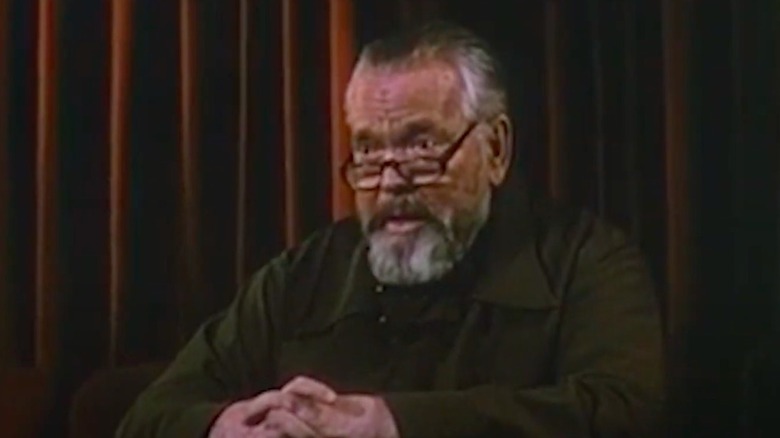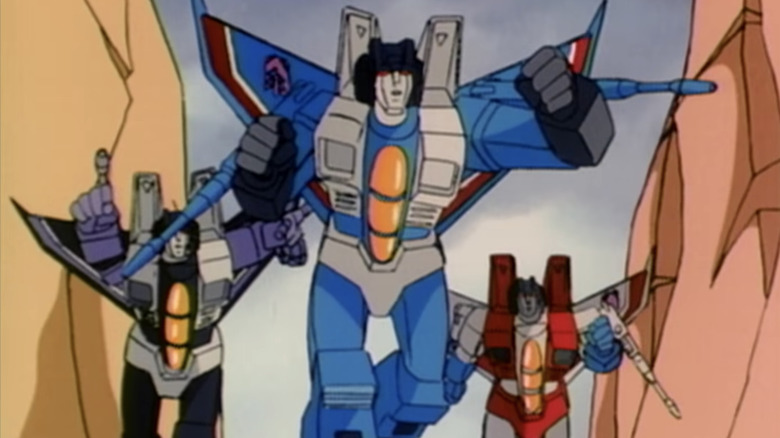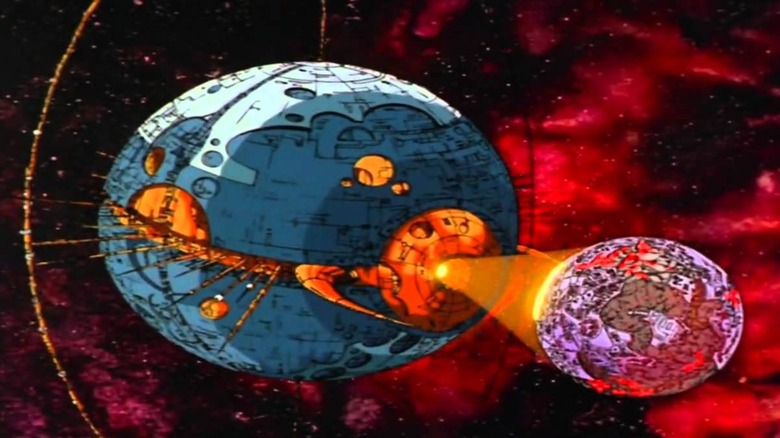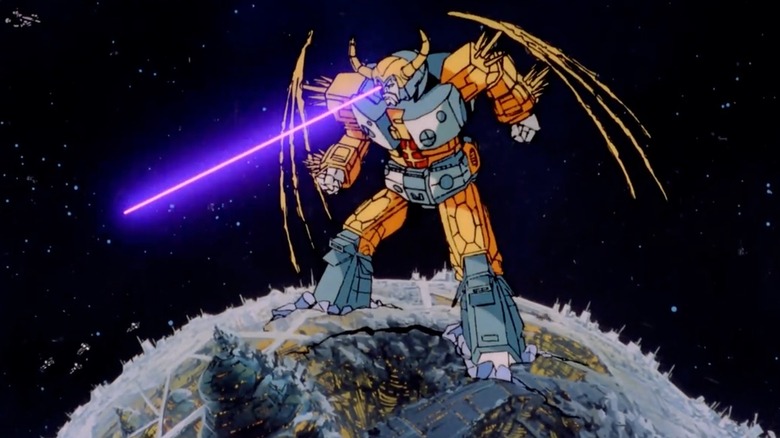Orson Welles' Final Role Was Yet Another Under-Appreciated Film
We may receive a commission on purchases made from links.
By the last decade of Orson Welles' life, the legendary actor and filmmaker had seen better days. The last film he directed to be released during his lifetime was "F For Fake," which came in 1973. Until his death in 1985, he tried, and failed, to get more projects off the ground; it took until 2018 for "The Other Side of the Wind" (shot in the 1970s) to see the light of day.
During this time, Welles loaned his magnificent voice to countless documentaries, trailers, and, commercials; he had a previous career on the radio, after all. His final role was a voice for animation, namely in "The Transformers: The Movie," where he played the villainous Unicron, a planet-sized Transformer who intends to devour Cybertron, the homeworld of the Autobots and Decepticons. How did this movie, of all things, end up as the capstone of Welles' career? Let's find out.
Background on The Transformers
"The Transformers" came into existence when Hasbro imported action figures from the Japanese toyline "Diaclone" stateside; comic writers Jim Shooter and Dennis O'Neil devised the story premise and character names. Thanks to loosened advertising regulations on children's television passed in the 1980s, the company was able to create a "Transformers" cartoon that was, functionally, a giant toy commercial.
"The Transformers: The Movie" was about cashing in on the show's success (though it didn't succeed), but there was an ulterior purpose as well: kill off the old characters (read: toys), which couldn't be done on TV, then introduce a new cast (read: next year's action figures). This means that the movie is shockingly brutal for an animated kids' film.
Despite this, the film's short length, simple story (a "Star Wars" riff), and genuinely kick-ass soundtrack mean it's still superior to the Michael Bay "Transformers" movies. The death of Optimus Prime was cynically motivated but ended up imbuing the movie with mythic weight. While a failure in the short term, "The Transformers: The Movie" played a key role in ensuring the long-term viability of the brand. You'd be hard-pressed to find a single Transformers cartoon, comic, or video game made since that doesn't reference it.
Welles' dissatisfaction
"The Transformers: The Movie" was ahead of curve in using celebrity voice actors. On top of Welles, the cast included Judd Nelson as young hero Hot Rod, Robert Stack as the stern Ultra Magnus, Eric Idle as the wacky Wreck-Gar, and Leonard Nimoy as Galvatron. Despite this esteemed company, Welles wasn't impressed with the experience. According to Peter Bogdanovich's book, "This Is Orson Welles," Welles recorded his lines on October 5, 1985, five days before his death. In that brief span, he still had time to bemoan the role. In the closing pages of Barbara Leaming's "Orson Welles: A Biography," Welles recounts to his interviewer:
"You know what I did this morning? I played the voice of a toy. Some terrible robot toys from Japan that changed from one thing to another. The Japanese have funded a full-length animated cartoon about the doings of these toys, which is all bad outer-space stuff. I play a planet. I menace somebody called Something-or-other. Then I'm destroyed. My plan to destroy [whoever] is thwarted and I tear myself apart on the screen."
It's easy to see why Welles felt this way. Unicron may be planet-sized, but he was also a paper-thin character. He's basically Galactus but a Transformer, complete with the herald (Galvatron filling in for the Silver Surfer). His other goal beyond planet-eating — destroying the Autobot Matrix of Leadership — also falls flat because the movie gives no reason why the talisman can destroy Unicron.
A contemporary review in the Los Angeles Times put it succinctly: "The great animated villains, like the Wicked Queen in Disney's 'Snow White,' had motivations as compelling as any live-action character. Unicron apparently destroys entire worlds because it has nothing else to do."
Making the most of Unicron
Later writers, in particular comic scribe Simon Furman, would flesh out Unicron where the film failed. Building on the character's devilish looks (as designed by Floro Dery), Furman established Unicron as the Cybertronian Satan. He wishes to destroy Cybertron because the planet is actually the dormant, transformed body of Primus, his twin brother and the Transformers' creator. The planet contains Primus' soul, so that's why Unicron is vulnerable to it.
None of this grand fantasy is present in the film as it stands, though. All the gravity of Unicron (beyond the literal) comes from Welles. Miraculously, his dispassionate delivery actually works: Unicron sounds like a bored god, indignant that he must lower himself to communicate with lesser beings. Whenever the villain does get moments of personality, Welles' famous wit shines through (e.g. "Nobody summons Megatron!" "Then it pleases me to be the first").
Welles undoubtedly deserved a better farewell role, but even phoning it in, his talent shined through.



